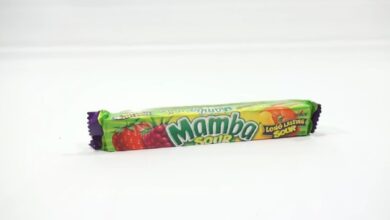Is Maruchan Halal
When it comes to instant noodles, Maruchan is a popular choice for its variety of flavors and convenience. However, for Muslim consumers and those adhering to halal dietary guidelines, it’s crucial to determine whether Maruchan products meet halal standards. This detailed article explores the question, “Is Maruchan Ramen halal?”, examining the ingredients, production process, and certification status of Maruchan noodles. By the end, you’ll have a comprehensive understanding of whether Maruchan fits into a halal diet and what alternatives exist for those seeking halal-certified instant noodles.
Understanding Halal Certification
Halal refers to what is permissible under Islamic law, particularly in relation to food and drink. To be considered halal, products must not contain haram (forbidden) ingredients such as pork or alcohol and must be prepared following specific guidelines. Halal certification involves a thorough examination of the entire supply chain, from sourcing ingredients to manufacturing practices.

Maruchan Ingredients and Production
Maruchan noodles come in a variety of flavors, some of which may contain non-halal ingredients. Common concerns include:
- Meat Flavorings: Certain flavors, such as chicken and beef, may use meat extracts. For these to be halal, the meat must be slaughtered according to Islamic law.
- Alcohol-Based Ingredients: Some flavor packets might include alcohol derivatives, which are not permissible in a halal diet.
- Pork Derivatives: Ingredients such as gelatin or lard are derived from pork and are haram.
A detailed analysis shows that Maruchan products often contain ingredients that raise questions about their halal status. For example, the chicken flavor includes powdered cooked chicken and chicken fat, which are not guaranteed to be halal-certified. Similarly, the soy sauce flavor contains beef extract, further complicating its halal status.
Certification Status
Currently, Maruchan does not have an official halal certification. This lack of certification means that there is no assurance that their products meet halal standards. Without certification, it is challenging to verify that the entire production process adheres to halal guidelines, including ingredient sourcing and processing methods.
Alternatives for Halal Instant Noodles
For those seeking halal-certified instant noodles, there are several alternatives available:
- Indomie: Known for its Mi Goreng and other flavors, Indomie offers a variety of halal-certified options.
- Nongshim: Their Soon Veggie Noodle Soup is a popular halal-certified choice.
- MyKuali: Offers Penang White Curry Noodle, which is halal-certified.
- Ottogi: Their Jin Ramen is a staple in many households and is halal-certified.
- Sapporo Ichiban: Their Chow Mein is another unique, halal-certified option.
Frequently Asked Questions
Is Maruchan Ramen certified halal?
No, Maruchan Ramen is not certified halal. While some ingredients might be permissible, the lack of official halal certification means that the entire production process has not been verified for compliance with halal standards.
Can Muslims consume Maruchan Ramen?
Muslims who strictly adhere to halal dietary laws may choose to avoid Maruchan Ramen due to the absence of halal certification and potential non-halal ingredients.
What ingredients in Maruchan Ramen could be non-halal?
Potential non-halal ingredients include pork derivatives, gelatin, and certain flavorings whose sources are unclear. These components are often found in the seasoning packets.
Does Maruchan offer any halal-certified products?
As of now, Maruchan does not offer any products that are officially halal-certified.
Why is halal certification important for food products?
Halal certification ensures that the food complies with Islamic dietary laws, covering everything from ingredient sourcing to production processes, giving Muslim consumers confidence in their food choices.
Are there any vegetarian Maruchan Ramen flavors that could be halal?
Some vegetarian flavors might be more likely to comply with halal guidelines, but without certification, there is no guarantee of their halal status.
How can consumers verify if a product is halal?
Consumers can verify by checking for halal certification from reputable organizations and carefully reading ingredient lists to avoid any prohibited substances.
What should I do if I am unsure about the halal status of Maruchan Ramen?
If unsure, it is best to avoid the product or seek advice from knowledgeable sources like a local imam or a halal certification body.
Can I contact Maruchan to inquire about their halal status?
Yes, reaching out to Maruchan’s customer service for clarification on their products’ halal status can provide more detailed information.
Are there halal-certified alternatives to Maruchan Ramen?
Yes, there are several brands that offer halal-certified instant noodles. Checking for the halal certification label on the packaging is the best way to ensure compliance.
Does Maruchan Ramen contain any alcohol?
Generally, Maruchan Ramen does not list alcohol as an ingredient, but the source of certain flavorings may not be disclosed, necessitating caution.
How does the lack of halal certification impact Maruchan’s appeal to Muslim consumers?
The lack of halal certification can limit Maruchan’s appeal to Muslim consumers who prioritize halal-compliant products for their dietary needs.
Can natural flavors in Maruchan Ramen be non-halal?
Yes, natural flavors can sometimes be derived from non-halal sources, which is a concern for those strictly adhering to halal guidelines.
What steps can Maruchan take to obtain halal certification?
To obtain halal certification, Maruchan would need to ensure all ingredients are halal, segregate production lines, and undergo regular audits by a reputable halal certification body.
Are there any hidden non-halal ingredients in Maruchan Ramen?
It is possible for hidden non-halal ingredients to be present, especially in flavorings and additives, which is why thorough examination of the ingredient list is recommended.
Does the absence of halal certification affect the quality of Maruchan Ramen?
The absence of halal certification does not affect the quality of the product itself but does impact its suitability for consumers following a halal diet.
Conclusion
In conclusion, Maruchan ramen is not considered halal due to the potential presence of non-halal ingredients and the absence of an official halal certification. For Muslim consumers and those adhering to halal dietary guidelines, it is advisable to choose alternative brands that offer halal-certified instant noodles. By doing so, you can ensure that your dietary practices are in line with Islamic law and enjoy your meals with peace of mind.
Read also:





